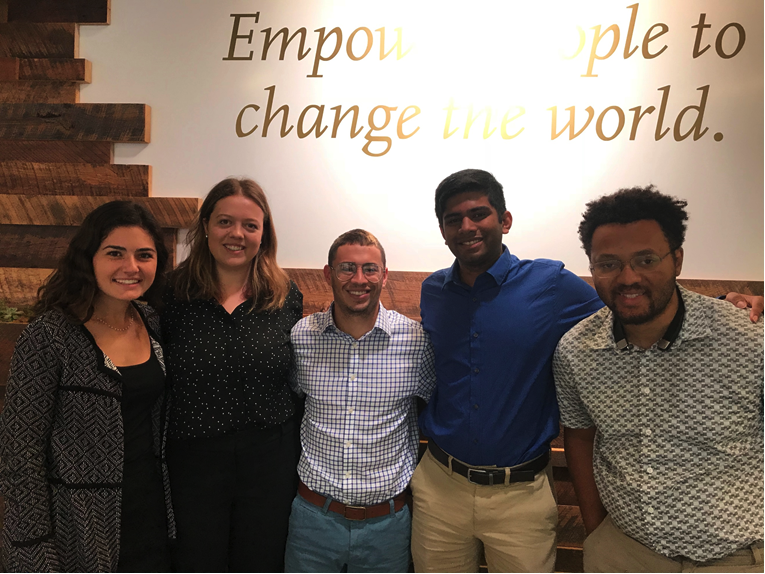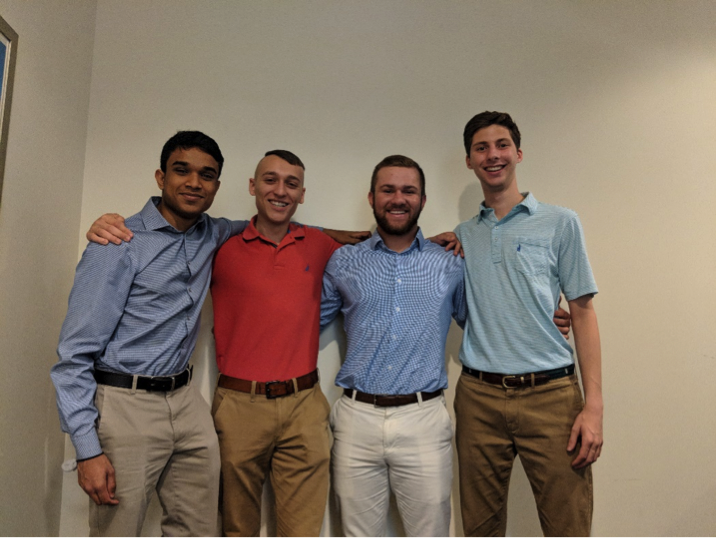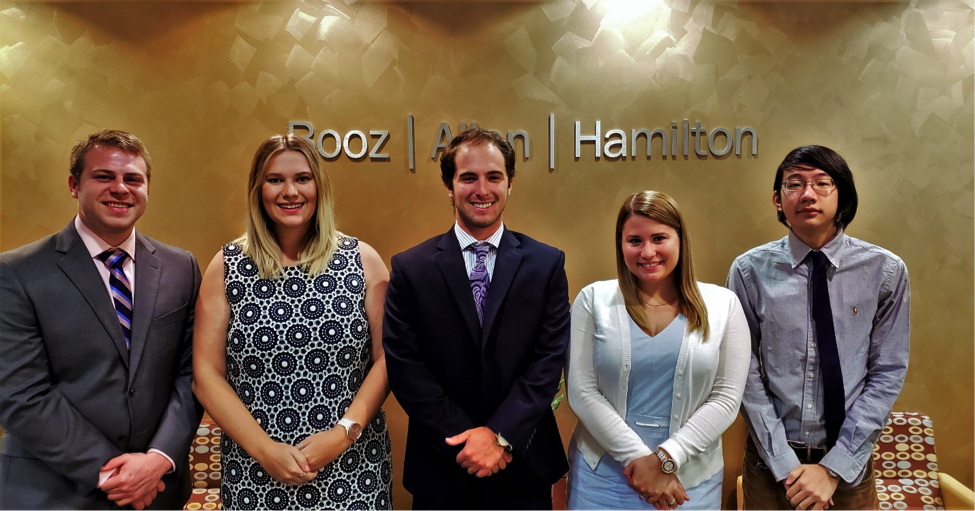How Booz Allen Interns Are Improving Federal Disaster Response with Blockchain and Other Technologies
Flashlight? First aid kit? Water? Check. When disaster strikes, federal disaster response agencies encourage us to be prepared with these and other basic emergency supplies. However, there’s much more to emergency preparedness than meets the eye. Before, during, and after a hurricane, tornado, flood, or wildfire, federal agencies must be able to quickly and effectively respond to, and communicate with, those in harm’s way.
Three teams of Booz Allen Hamilton’s Summer Games interns are doing their part to help federal agencies bolster emergency preparedness. They’re building innovative solutions using blockchain, mesh network technologies, and data science to improve disaster relief efforts.
Learn more about the teams’ work in their own words:
Optimizing the Federal Disaster Relief Supply Chain with Blockchain
“We’re developing a blockchain-based software solution to help federal agencies more rapidly deliver lifesaving supplies—such as water, food, and blankets—during a disaster,” says Malik Nelson of the Washington, DC-based Summer Games team. “Our goal is to eliminate process inefficiencies that can severely hamper supply chain logistics. Our application connects disaster relief agencies and private-sector supply companies. We’re applying system diagrams, web development, and site wire framing to supply chain optimization. The resulting prototype creates a transparent disaster response marketplace, where federal agencies and industry partners come together to effectively deliver critical supplies.”
Boosting Emergency Communications with Off-the-Grid Messaging
“Before cell phones, people used ham radio to quickly talk to each other and send messages over long distances. We’re turning back the clock and creating a mesh network app to facilitate communication between Android phones that have lost connection to both cell towers and wireless Internet,” says Kusal De Alwis, one of four interns on the Annapolis Junction, Maryland-based Summer Games team. “With our app, messages can pass from phone to phone without ever pinging a cell tower. Disaster relief agencies can use this tech to send disaster warnings or emergency information to phones within range far more quickly than currently possible—saving lives. In addition, there’s no need to transport special personnel or equipment to the area. Instead, agencies can use the cell phones that people already carry with them.”
Assessing Flood Risk with Data Science and Crowdsourcing Techniques
“Applying data science and analytics techniques, we’re creating an application for flood risk assessment. Residents of coastal communities can use it to estimate their personal and property risk due to major storms,” says Bridgette Soucy of the Norfolk, Virginia-based Summer Games team. “Using light detection and ranging (LIDAR) data, we determined first-floor home elevations and created housing models for the app. Combining LIDAR and data from other agencies gives users an idea of what areas are expected to flood and when. And adding up-to-the-minute crowdsourced data offers live updates of flooded streets and unsafe areas. In the event of hurricanes and other major storms, our app improves emergency preparedness—helping people understand potential flood risks, and real-time evacuation orders.”
Learn more about how Booz Allen’s Summer Games interns are empowered to change the world.




